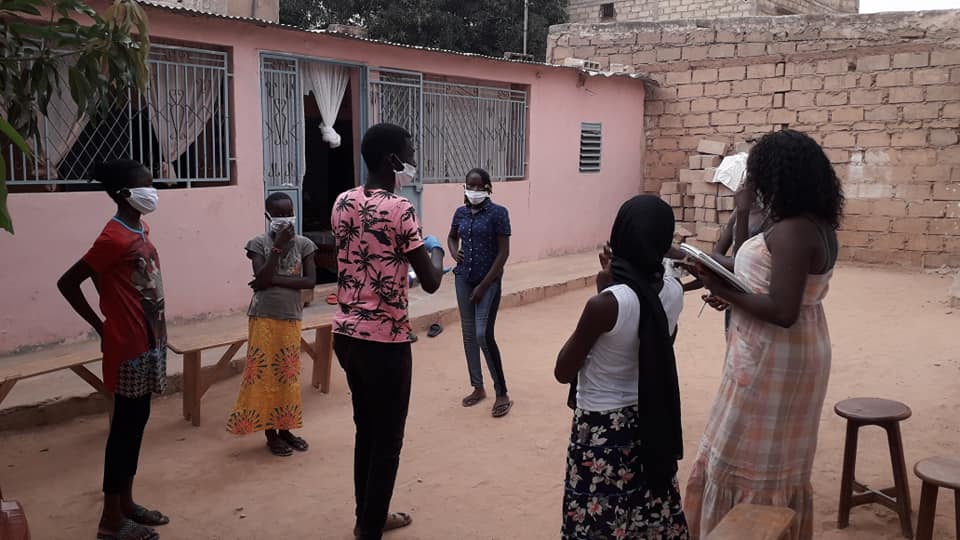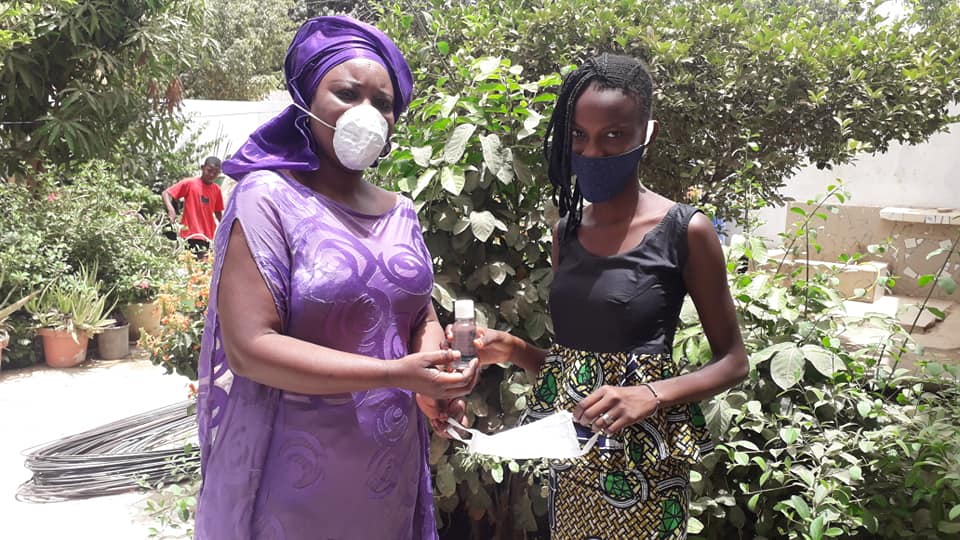
In Senegal, 24% of children are subjected to severe physical punishment – which is a violation of children’s rights as expressed in Article 19 of the United Nations Convention on the Rights of the Child. Teaching children about their rights is important not only to build their capacity to stand up for themselves and others, but to empower youth to become the next generation of human rights defenders and changemakers. Equitas’ work with youth, here in Canada and with partners in Senegal, recognizes the importance of instilling human rights values in youth and of empowering youth to become changemakers in their communities.
Equitas’ partners in Thiès, Senegal are important actors in the region, working to promote children’s rights and gender equality. The GEEP, works in schools through student-led clubs and promotes human rights education geared towards protecting children’s rights and youth reproductive rights. La Palabre operates three projects in the region: a shelter for women and girls who are survivors of violence, an afterschool program to help children from vulnerable communities to succeed academically, and sessions to raise awareness on issues like forced marriage, female genital mutilation, and sexual violence. In their work on children’s rights and youth empowerment, Equitas’ partners in Senegal have been using the training and activities from Equitas’ Play it Fair! toolkit to teach children about their rights and instill a greater respect for human rights in youth. The toolkit contains over sixty activities that use human rights education to promote human rights values, non-discrimination and peaceful conflict resolution.

Empowering Youth to Become Changemakers
While addressing a multitude of social issues and human rights concerns, Equitas’ partners in Senegal all work to promote children’s rights and it is in this context that the Play it Fair! toolkit is utilized. Khady Sow Diop, Vice-President of La Palabre, discusses how the activities are used in the afterschool program run by the organization, and how, when children responded positively, Khady started bringing the toolkit to other schools in the area and eventually facilitating sessions for teachers. According to Khady, the youth’s favourite activity was one where they are presented with a disability, for instance a motor impairment, and then asked how they would get from Point A to Point B. Introducing the kids to rights of persons living with disabilities allowed them to put themselves in another person’s shoes and become more sensitive to the struggles of others, while also reducing the stigma and discrimination against people living with a disability. This activity also introduces children as they realize that not all children face the same difficulties in exercising their rights, depending on their different identities. Being able to diagnose problems and violations of rights, as well as their causes, then being able to reflect on a more ideal situation, is an effective approach for human rights education.
This approach to working with children recognizes that by building the capacity of children to engage in issues specific to children’s rights, such as violence against children, youth are empowered to not only protect themselves but to become advocates for human rights. According to Omar Kebe, the General Coordinator for GEEP, in Senegal youth tend to not pay much attention to their rights, but GEEP wants to use activities like those in the Play it Fair! toolkit to get kids to take control of their own rights and to pass on the knowledge they gain to their family members, friends and classmates to create a society that respects human rights.
For Khady, the goal of La Palabre’s work is similar – she wants to build “a safer community where the rights of women and children are respected.”
Building on Previous Trainings: The IHRTP
For both Omar and Khady, their past experience at Equitas’ International Human Rights Training Program (IHRTP) only added to the success of their activities. Equitas’ participatory approach is an approach to human rights education and social action aimed at the empowerment of participants to develop their own actions for social change. This approach enables human rights organizations to address human rights issues from the perspective of participants’ lived experiences and not through a one-size-fits-all approach. Khady expressed that though she had been introduced to the approach before:
“it is only with Equitas, [she] began to understand the participatory approach.” Using this approach with children in the La Palabre trainings, youth are encouraged to share their own experiences and knowledge, which is then used to shape their learning.

Omar expands on this in describing how his experience at the IHRTP, and especially how using the participatory approach he learned during this three-week training has helped him run the courses at the school where he works. Getting the kids to participate in their own human rights education and tailoring the learnings to their lived experiences has improved the capacity of the group to address human rights issues. Through using this approach, Omar and the rest of GEEP, used the Play it Fair! toolkit employing the participatory approach and attributes much of the activity’s success to this approach. The Play it Fair! toolkit centers seven values (collaboration, respect, fairness, inclusion, respect for diversity, responsability, acceptance) and Omar challenges the kids to pick the values most important to their current context in Senegal during the pandemic. One value the children choose often is inclusion, because persons infected with COVID-19 often face discrimination and stigma, and therefore actions have to be taken to combat this. By empowering youth to draw on their own perspectives and come up with an action for social change, they are able to experience what living by human rights values really looks like.
Promoting a Culture of Respect for Human Rights
The COVID-19 pandemic is contributing to serious human rights abuses in Senegal. Omar explains that the right to health in Senegal is being critically threatened by not only the virus itself but by the devastatingimpacts it is having on the health care system, thereby reducing access for those who need urgent care. Khady explains human rights violations in the area of civil rights, where police brutality against those not respecting public health guidelines is common and discrimination against those with COVID-19 has turned violent. There are also concerns that children’s right to education is at risk as online learning is impossible for many children without access to computers, internet, or electricity.
This is what makes a human rights–based approach so important – when you center human rights in every context, it is easier to identify violations and address them. According to Khady, it is best to start instilling this perspective in children, so they grow up with a respect for human rights, rather than wait until they are adults and behaviours have to be unlearned. This is only one of the many reasons Equitas and its partners place so much value on human rights education for youth – to eventually have a generation that looks at the world through a human rights lens in every situation and context, valuing human rights and dignities at all times.